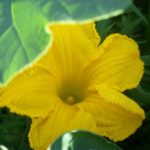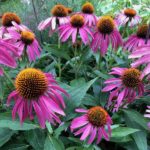Happy New Moon – June 28, 2022
The Alien World of Fungi
The word alien is often used to describe beings from elsewhere – whether it’s another country or outer space. However the word alien can mean strange, foreign, odd, or simply something we know little about. And honestly, fungi absolutely meet that criteria.

Although we often think of fungi as mushrooms, that’s just the fruiting body of some fungi. Fungi themselves do not have fixed shapes – they form vast networks in the soil and throughout other living creatures. They eat rocks and break down toxic waste, including radioactive waste. Some species can help cure cancer and others will kill you instantly. They are able to communicate with other species over vast distances even though they do not have a brain or a nervous system. They are weird, unusual, and alien.
Entangled Life
I just finished reading Merlin Sheldrake’s book, Entangled Life, How Fungi Make our Worlds, Change our Minds, & Shape our Futures . It is so packed with fascinating information about fungi that I am reading it a second time and I highly recommend it. There is a lot to absorb!
Here are some of my top take-aways from the book.

First, fungi were the reason algae were able to move onto the land and become plants 500 million years ago. Fungi, with their ability to burrow through rocks and create soil, partnered with algae that could create food from the sun. Fungi served as the roots for the first plants – they didn’t support the roots – they WERE the roots. And many millions of year later, most plants still have fungal relationships that are essential for their existence. (ESSENTIAL not just helpful.) As a gardener I am fascinated by this fact as none of my early gardening education included this information about how plants moved onto land or anything about fungi. And this leads to my second take-away – we are just beginning to learn about them.
There is Much We Don’t Know
In the last twenty years there has been an uptick in interest, especially around edible mushrooms for physical, emotional, and spiritual health. However 90% of the estimated 2.2 million species are not cataloged or known. It is humbling how little we know but also exciting to read about the people working to increase our knowledge. Because only a small subset of fungi develop mushrooms, we we don’t see the rest and we don’t think about them. Out of sight – out of mind is a problem for humans because fungi do a ton

of work out of sight.
And that leads to my third take-away – being aware of the vast mycelium networks (fungal threadlike colonies) that fungi weave through the soil and in and around plants and trees. This network supports the exchange of nutrients and distribution of water. These filaments help hold the soil together – a reason we should avoid rototilling and plowing. Fungi are intricately involved in the health of soils and well being of plants. Sheldrake calls the mycelium networks the “ecological connective tissue, a living seam by which much of life is stitched into relation”. He goes on to say that these fungal partnerships with plants are more fundamental than leaves, flowers, and fruits. Fungi make life on the planet possible.

Fungi as Mindfulness Focus
The last take away is that it’s impossible to read this book and not be in awe of the mystery of life on the planet and the interconnection of living organisms. Fungi are embedded in soil, plants, and animals (that includes us humans). As researchers delve into these mysteries it becomes harder and harder to tell where one organism ends and another begins. We humans, just like plants, are a bundle of fungal relationships. That alone can be a focus for contemplation.
When we include mushrooms in a meal or see them popping up in our gardens, we can stop to appreciate that they are the tip of the iceberg of a vast network of mycelium. As we walk through our gardens and neighborhoods we can focus on this unseen network below our feet.
Going Deeper
Reading about and interacting with fungi can inspire us to hold an awareness of our own connectedness throughout the day. What connects us to others (human and not) on a daily basis? Energy…Words…Emotions…Touch? What do we exchange with other organisms? And are we sure about where we end and they begin? After reading Entangled Life, you’ll be contemplating all of this.
If you aren’t convinced to read the book yet, check out the many You Tube interviews with Merlin Sheldrake. This is a link to one of my favorite.
And this from the National Forest’s Blog on Underground Networking

Lunar Blog Post Series
This post is part of my lunar blog post series. Because the new moon is a time of relative darkness, my new moon posts are about shining a light on a topic that might not be well known. The full moon posts focus on one of the plant featured in my book, Growing Mindful, Explorations in the Garden to Deepen Your Awareness. For more details on the lunar blog post series and to see past posts click here.



Great information. I’m going to share your blog with my sister and brother-in-law in South Carolina. They are part of a “mushroom group” who forage for mushrooms and sell edible ones to restaurants as a side income gig. They even travel to other states to do it where different edible mushrooms thrive. They love the mushroom hunt. But I’ve wondered how all these people are affecting the environment by picking all the mushrooms (and not carefully either). Is it good or bad or neutral for Fungi? What do you think Joann…
Debbie, Great questions – I don’t know the answer to that. I hope if they are part of a mushroom collecting group that they are aware of any environmental concerns of just too many people tromping around in the woods and they are responsible when harvesting. I would think there is more risk of harming other plants as they are hunting mushrooms than hurting the fungi themselves since the mycelium are underground. However, if mushroom hunters are taking every mushroom they find and the mushrooms are not able to release their spores then that also could be a problem down the road. If they are interested in mushrooms I think they would really like Sheldrake’s book.